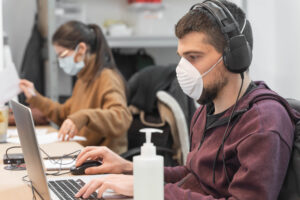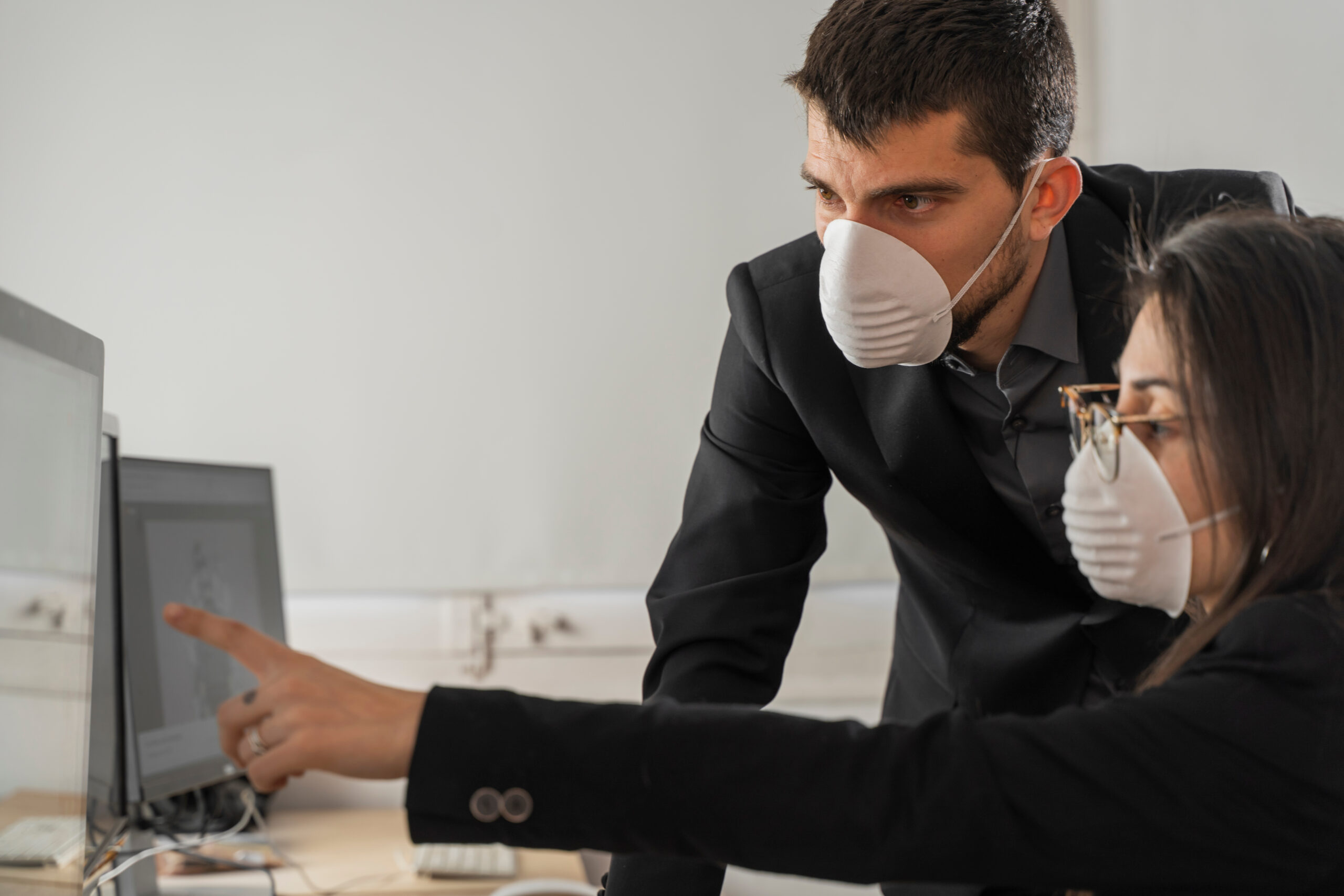Are you ready for life after the lockdown? Can you order in food, how do you deal with the help at home, cab aggregators, etc? Our health specialist Dr Noor Gill addresses some frequently asked questions
We are all glued to our television sets, waiting on news, an update, any new information about the lockdown to be lifted. But will we ever be able to go back to the lives that we had before? We were all shunned to our homes to not step out until it was safe and clean (ironically enough, the environment and the air has never been cleaner before) but it is also riddled with a contagious virus. We are all suddenly very aware of how we, at any given moment of time, carry along with us at least a hundred thousand different kinds of microorganism, some good some bad. But in the corona age, it is the need of the hour, it is after all a matter of our health. And we don’t compromise when it comes to our health, and we shouldn’t put it at risk either.
After a lot of thinking, putting pen to paper and research, here are a few answers I could find.
But before we dive right into it, I want you to know that I, much like yourself, have absolutely no idea what we’ll be doing a month from now, but that is okay because no one does.

Be prepared
It is always better to be prepared with a few answers than to show up for a test completely unprepared. Taking into consideration the current times, it is less about hoping for the best and more about preparing for the worst.
Everything that we discuss in the section below will come under an umbrella cover / general disclaimer: it is a risk. Everything is a risk. Staying at home and getting your groceries delivered by someone from outside also poses the same threat as going out and getting your groceries yourself. It is a choice that you make. But it is still a risk, either way.
Maids, Cooks, House help:
So can they get back to work as soon as the lockdown is eased? As far as them coming back to work is concerned, you can ask them if they or any member of their family have been ill lately. You can even check their temperature, but they will be going and coming everyday and you don’t know who they’ve been in contact with, so a logical solution to this problem is: if the maid agrees to it, a locality or society can pitch in to keep the maid in an accommodation within the premise of the society. That way, they can help you with your work and you would know that they haven’t been out.
Or if you live in an independent house or bungalow, and have a back exit, your maid can enter and leave from the same. You can keep a pair of gloves, a hand sanitizer and a face mask out for her/him to use before entering and discarding on the way out and what if you aren’t able to ensure that your help stays in your housing complex/house?
If the help refuses to stay back or if due to your personal reason, then the best choice you have is, you divide the chores amongst the family members and do them yourselves. My family has been doing it for the past month-and-a-half and we can keep at it until we come up with a suitable solution to the problem.
Drivers, Car cleaners and Shared rides :
if you have a personal driver, if they are consenting and willing to stay back, they can stay with you in an accommodation, if you can provide for one, thus reducing the risk of contact from outside. If not, you could finally take the car for which you worked so hard and long, for a drive yourself.
To get your car cleaned, try taking it to an automatic car wash to avoid any human contact. Since it is hard to come across car washing belts in India, get down and dirty every Sunday and clean your vehicle yourself. If you can’t rely on others to do things for you out of fear of contracting the virus, you’ve got to take matters into your own hands, quite literally.
As far as cab rides for transportation are concerned, avoid sharing a cab. If you have no other choice but to share one, make sure it has no more than two passengers, you included. When you enter the vehicle, ensure that the driver and your co-passenger are wearing a mask and gloves. Avoid paying with cash and make an online transaction instead. Once you reach your destination, wash your hands and face. Sanitise your bag, phone or any other belonging that you were carrying in your hands.
At present, public means of local transportation such as metros and local trains are not in use, until the potential threat of the virus is not following us everywhere into crowded places.
Once these modes of commuting are back in use, let’s try maintaining social distance, which might be hard, considering the working population of the country. Keep your face and hands covered at all times, wear a protective layer over your clothes and dispose it as soon as you reach your destination while also sanitizing your belongings. Or you could wear a raincoat over your work clothes and carry with you a clean poly bag that you keep separately, remove the coat once you reach your harbour and place it in the bag. Wear it again on your back home. Once home, put it in detergent water and let it dry in the sunlight. Ready to be used again.
Goods delivery persons, Food delivery services:
If you have someone deliver goods at your place, ask them to double-pack them and leave the items at your doorstep/society gate. Discard the outer packaging either outside the house into a covered bin or immediately in your house before you put the bag on a surface. Take the items out of the bag, if they are packaged goods, keep them in sunlight for 2-3 hours. In the case of fruits and vegetables, rinse and clean them in soap water followed by clean water rinsing. Only after you have cleaned the food items, place them in the refrigerator. Wash them once before consuming the fruit or vegetable as well.
Avoid ordering food from outside. The restaurants and eateries will have to take certain measures to ensure clean sanitised food stations and deliveries, but until minimum standards of sanitation are not set for these places, it would not be sensible to get food delivered. If you do order, make sure that they have clean cooking stations and their staff is tested regularly, all of this information is not easy to come by. Refrain from ordering cold foods or salads. Order food you can reheat easily. Again, if you do order, get your food double-packed and ask the delivery person to leave it at your doorstep/gate and make an online transaction.

Workplace:
Work from home was fun in the beginning, now we haven’t come out of our jammies in a very long time. We’ll soon have to get out of our comfy home attire and change into our formal shirts and suits. But what measures should you take once you’re at work?
Have sanitizers at every workstation or carry your own. Make sure that there is at least 2m distance between two work desks. If someone is unwell, politely ask her/him to leave, even if it seems to be ‘just a cold’. Wear your masks and gloves at all times. Refrain from shaking hands, stick to the traditional namaste to greet one another. Only have the lift operator press your floor button for you. If you do not have a lift operator, carry a box of toothpicks or wooden sticks that you can use to press the button and dispose of the stick immediately into a covered bin. That is one alternative, another option that you have is: take the stairs. While taking the stairs, do not touch the railing or lean onto the wall for support.
The only economically feasible and reliable test that you can perform is temperature testing. All workplaces should have infrared thermometers. A reading of more than 100.4°F (38°C) should be an indicator for the employee to isolate themselves for 14 days before coming back to work.
Chaiwallah, cigarette vendor next to your office/ Roadside bhel or chaatwallah:
Wearing a mask when in a public place has been made compulsory by the government. When going out for some street food, ensure that your vendor is wearing a glove and mask while handling goods. Stand in a line, maintaining appropriate distance from other customers. Make sure that they use mineral/bottled water and packaged goods only. Ask them to keep all other food items covered when not in use. Kindly request them to put your order on the counter instead of handing it to you.

Movie halls, Malls, Clubs, Restaurants:
It would not be sensible to avail of non-essential services at the moment. Avoid going to crowded public spaces and eating too much from outside right away.
The elderly are more vulnerable and need to be more cautious of their surroundings. Keep your homes clean and tidy. Eat better. Exercise regularly and avoid physical contact with people who do not live with you, regardless of how well you know them. Amidst this pandemic, let’s not disregard our other medical needs. Stay in touch with your general physician and get your prescriptions refilled a little before you might run out of them.




Comments are closed.